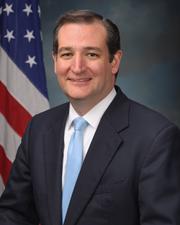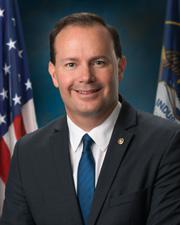0
0
0
Repeal CFPB Act
3/11/2024, 5:01 PM
Summary of Bill S 1363
Bill 118 s 1363, also known as the Repeal CFPB Act, is a piece of legislation currently being considered by the US Congress. The bill aims to repeal the Consumer Financial Protection Bureau (CFPB), which was established in 2010 in response to the financial crisis of 2008.
The CFPB is an independent agency tasked with protecting consumers from unfair, deceptive, and abusive practices in the financial industry. It has the authority to regulate financial institutions, enforce consumer protection laws, and educate consumers about their rights.
Supporters of the Repeal CFPB Act argue that the CFPB is too powerful and lacks accountability to Congress. They believe that the agency's regulations stifle innovation and harm small businesses. They also argue that the CFPB's funding structure, which is independent of Congress, is unconstitutional. Opponents of the bill, on the other hand, argue that the CFPB plays a crucial role in protecting consumers from predatory financial practices. They believe that repealing the agency would leave consumers vulnerable to fraud and abuse by financial institutions. They also argue that the CFPB has been effective in returning billions of dollars to consumers who have been harmed by financial wrongdoing. Overall, the Repeal CFPB Act is a controversial piece of legislation that has sparked debate among lawmakers and stakeholders. Supporters believe that repealing the CFPB would promote economic growth and protect small businesses, while opponents argue that the agency is essential for safeguarding consumers from financial harm.
The CFPB is an independent agency tasked with protecting consumers from unfair, deceptive, and abusive practices in the financial industry. It has the authority to regulate financial institutions, enforce consumer protection laws, and educate consumers about their rights.
Supporters of the Repeal CFPB Act argue that the CFPB is too powerful and lacks accountability to Congress. They believe that the agency's regulations stifle innovation and harm small businesses. They also argue that the CFPB's funding structure, which is independent of Congress, is unconstitutional. Opponents of the bill, on the other hand, argue that the CFPB plays a crucial role in protecting consumers from predatory financial practices. They believe that repealing the agency would leave consumers vulnerable to fraud and abuse by financial institutions. They also argue that the CFPB has been effective in returning billions of dollars to consumers who have been harmed by financial wrongdoing. Overall, the Repeal CFPB Act is a controversial piece of legislation that has sparked debate among lawmakers and stakeholders. Supporters believe that repealing the CFPB would promote economic growth and protect small businesses, while opponents argue that the agency is essential for safeguarding consumers from financial harm.
Congressional Summary of S 1363
Repeal CFPB Act
This bill repeals the Consumer Financial Protection Act of 2010, which established the Consumer Financial Protection Bureau.
Read the Full Bill
Current Status of Bill S 1363
Bill S 1363 is currently in the status of Bill Introduced since April 27, 2023. Bill S 1363 was introduced during Congress 118 and was introduced to the Senate on April 27, 2023. Bill S 1363's most recent activity was Read twice and referred to the Committee on Banking, Housing, and Urban Affairs. as of April 27, 2023
Bipartisan Support of Bill S 1363
Total Number of Sponsors
1Democrat Sponsors
0Republican Sponsors
1Unaffiliated Sponsors
0Total Number of Cosponsors
8Democrat Cosponsors
0Republican Cosponsors
8Unaffiliated Cosponsors
0Policy Area and Potential Impact of Bill S 1363
Primary Policy Focus
Finance and Financial SectorAlternate Title(s) of Bill S 1363
Repeal CFPB Act
Repeal CFPB Act
A bill to eliminate the Bureau of Consumer Financial Protection.
Comments
Sponsors and Cosponsors of S 1363
Latest Bills
Enduring Justice for Victims of Trafficking Act
Bill S 2584December 11, 2025
VSAFE Act of 2025
Bill S 2683December 11, 2025
Veterans National Traumatic Brain Injury Treatment Act
Bill S 2737December 11, 2025
CARING for Our Veterans Health Act of 2025
Bill S 2397December 11, 2025
Health Records Enhancement Act
Bill S 2333December 11, 2025
RESPECT Act of 2025
Bill S 2807December 11, 2025
Review Every Veteran’s Claim Act of 2025
Bill S 1657December 11, 2025
ARCA Act of 2025
Bill S 1591December 11, 2025
SBA Fraud Enforcement Extension Act
Bill S 1199December 11, 2025
Fighting for the Overlooked Recognition of Groups Operating in Toxic Test Environments in Nevada (FORGOTTEN) Veterans Act of 2025
Bill S 2220December 11, 2025
Repeal CFPB Act
Bill HR 2937December 15, 2023




